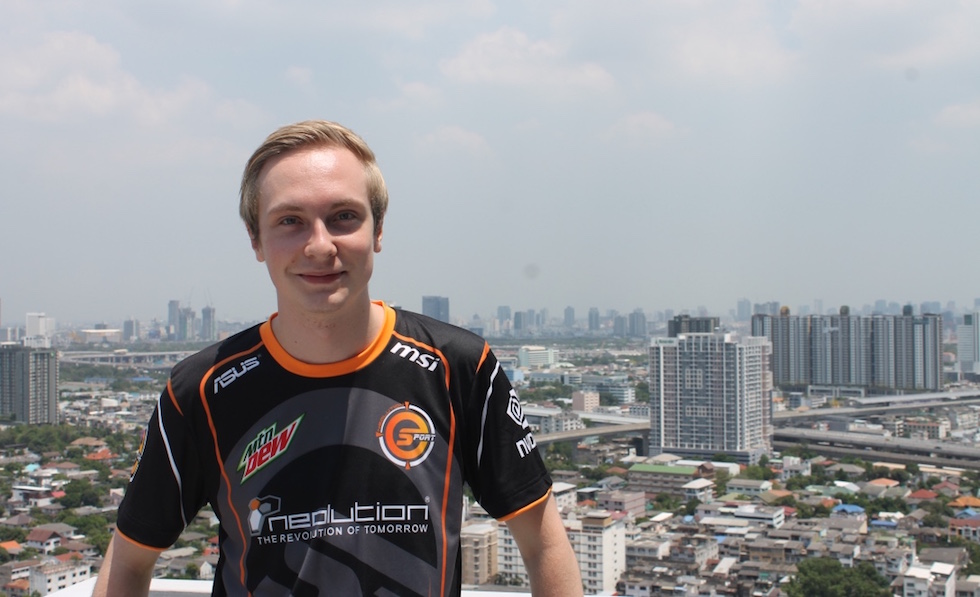
22 year-old Pontus Mähler from Sweden moved to Thailand seven months ago trying to evolve as a professional gamer. Now, beside making a living of playing computer games, he is the CEO of Neolution E-Sport and working on a restaurant project.
Spending all day alone in a dark room, only lit up slightly by the colourful lights flickering from a computer screen. Whenever there is a slight pause in the game playing on the PC, a hand reaches down into a bag of chips and then to take a sip of the coke bottle standing next to it. Isolated. Socially awkward. Lazy. Unhealthy.This is how some people imagine the life of a gamer.
Being a gamer can bring along a lot of prejudice. 22-year-old Swede Pontus Mähler, known as Zlapped in the gaming world, is not what many would expect when thinking of someone who makes a living of playing computer games. He is social, outgoing and a hard worker, and is fighting to break the stereotypes.
Bigger market in Thailand
Thailand is the biggest place for playing Heroes of Newerth, the strategic computer game which Pontus plays professionally. If Pontus wanted to evolve, the best option would be to move from Sweden to Thailand. And around seven months ago, he did.
“I thought: ‘Whatever comes my way’, and moved here only as a professional gamer. One week into it I got a sponsor and a job as international product manager,” says Pontus.
Since then things have evolved quickly for the young Swede, who after just three months became the CEO of the company he was working for, Neolution E-Sport.
He had previously worked with managing an eSport team and organization, Sync eSport, so the transition was somewhat simple to him, the biggest difference being that Neolution is much bigger, in fact the biggest eSport group in Thailand.
eSport, just like any other sport
Not everyone has heard of the phenomenon eSport, and professional gamers often meet confusion and questions about whether this is really a thing, and something you can actually make a living of. The answer is yes. eSport is a constantly evolving phenomenon, but really, it is not that much different from other kinds of sport.
Everyone know what football, hockey and basketball is, it is sport. So is eSport, but for gaming. Dota, League of Legends, FIFA and Heroes of Newerth are just a few of the games you can become a professional gamer in, just like you can in sport. People specialize in a game, and if they are good enough, they get a sponsor, join a team and start competing against other teams.
Playing on a PC, PlayStation or Xbox is a normal part of many young people’s lives, but to take it to the next level and become professional, it takes a lot of time and practise, and of course talent, just like any other sport.
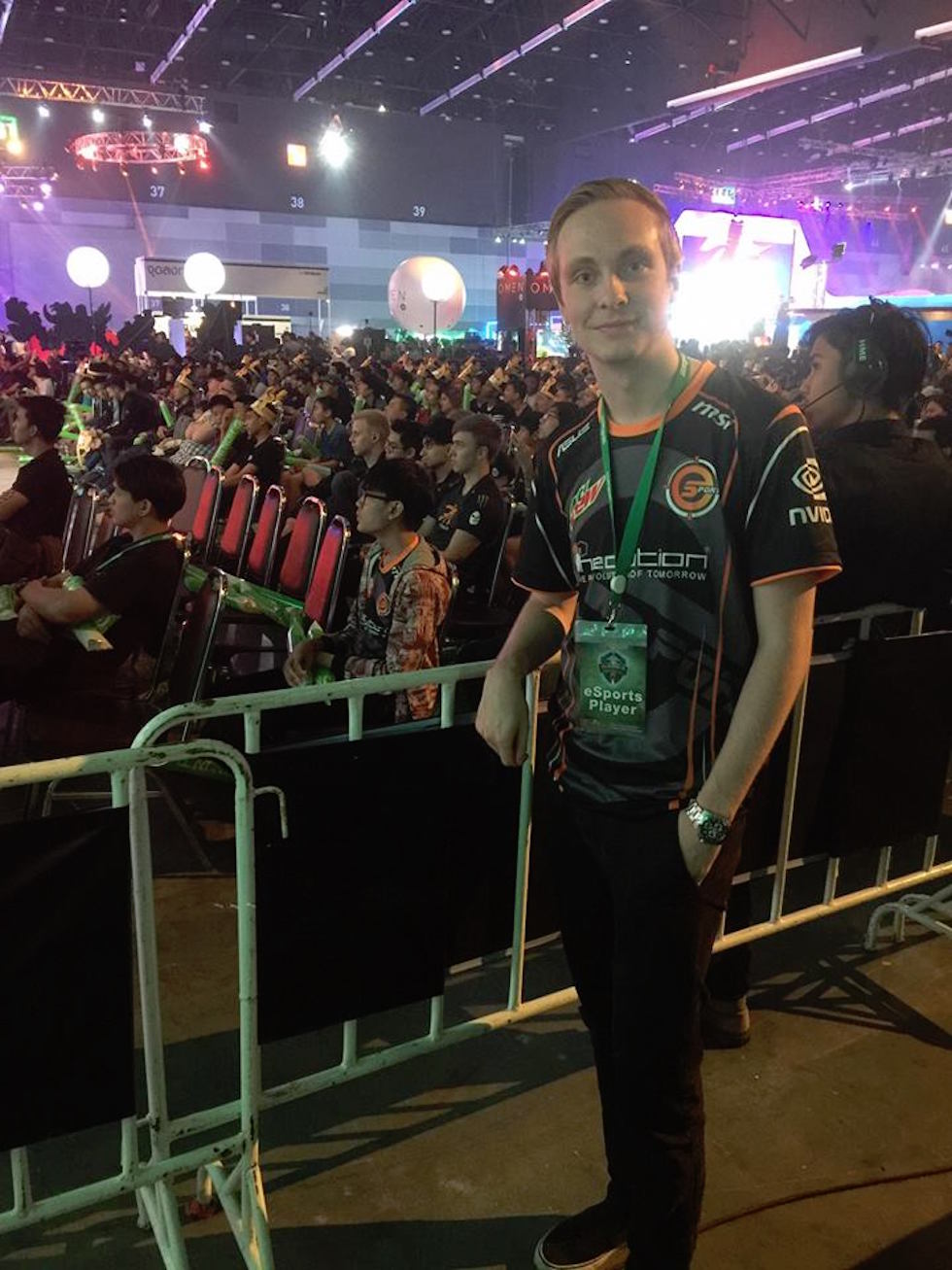
More acceptable in Sweden
Pontus also experiences the confusion and lack of understanding of eSport, but he also sees a much more positive view on it than what could be expected.
“Many people are not just like: ‘What is eSport, that’s stupid!’ Many see it as something interesting and cool, as the future.”
A career in eSport seems to be much more acceptable in Sweden than in Thailand though, believes Pontus. Opposite to in Sweden, parents in Thailand are not very supportive of their kids being professional gamers.
“Even though many of them make a lot more than the average Thai salary, their parents do not show up at events to watch or support them.”
There is a lot of negative things that people connect with gaming. Pontus hopes that he can somehow help break through the negativity and show the good things about eSport, and to make people accept it on the same level they accept other sports.
“They beauty of it is that it is available for everyone online. It is not discriminated by age, gender or race.”
Making gaming sexy
In what was supposed to be his gap year after high school he started streaming, which means people can watch him online and ask him questions while he is playing on the computer, a very popular trend in the gaming world. As he is streaming, people can sponsor and donate money to support him. His streams quickly became popular, and in 2012 he was invited to join his first professional team.
He now has 32 000 followers on his stream, more than 95 000 fans on Facebook and more than 100 000 subscribers on YouTube. Pontus says the stream is what ultimately lead him to where he is today. Allowing him to play professionally and making contacts, it is what in the end got him his CEO position. But beside that, he has is also part of another project, which he hopes can also make some changes on people’s perspectives of gaming.
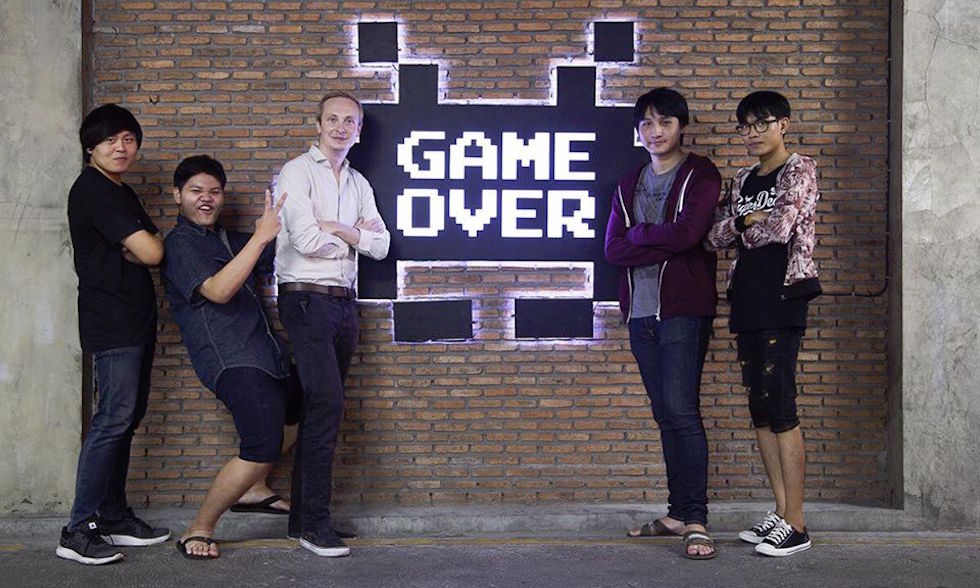
Game Over Lounge is a restaurant, bar and lounge; a social place that has pool, board games, computer rooms for gaming, as well as a kids’ part for families. It is a project that Pontus joined three months ago, one month after its opening in Bangkok.
“It is a very big mix, but that is what makes it awesome. And then the design and interior of it, it is very cool and cosy.”
Planning to expand the project to Sweden, Pontus just came back from an eight-day visit in his home country, looking for partners, investors and a venue. He hopes that Game Over Lounge will open in Sweden sometime this year.
Pontus wants to make E-Sport sexy, and is hoping that as board member and eSport Director at ‘Game Over Lounge’, he can help make that happen.
Working to the breaking point
Juggling so many projects means often working form 9am until midnight, six days a week. He starts the day with his Neolution job, then streaming around 2 or 4pm, depending on his schedule, until 10 or 11pm. Then afterwards he will be fixing videos for YouTube or whatever else he has missed through the day. And somehow he even finds time to go out and see friends.
It is a lot of work, and Pontus have previously had a breakdown from working too much.
“The pressure I put on myself to always put out the same amount of content and still keep the same schedule regardless of stress ultimately lead to the breaking point. It lasted for quite a while but I never came clean with it; I just sat there.”
At that point, one and a half year ago, a sort of anger started to show from the 20-year-old Pontus. His fans started to notice his mood changes, and some even stopped following him because of he just was not the same guy they used to follow.
“Basically, I was working too much. I could not sleep because I was always thinking of work, and the only way to get my mind off it was to drink. At 20 that is really really bad. Ultimately it ended up with me puking blood.”
After that night, where he suddenly found himself puking blood, Pontus realised it was time to change things. The way to do that was to come clean to his fans and write a long Facebook post explaining everything. And the support he got was overwhelming.
“I think I received like 200 or 300 personal messages from people who had went through the same thing. I still have those today. The support was amazing.”
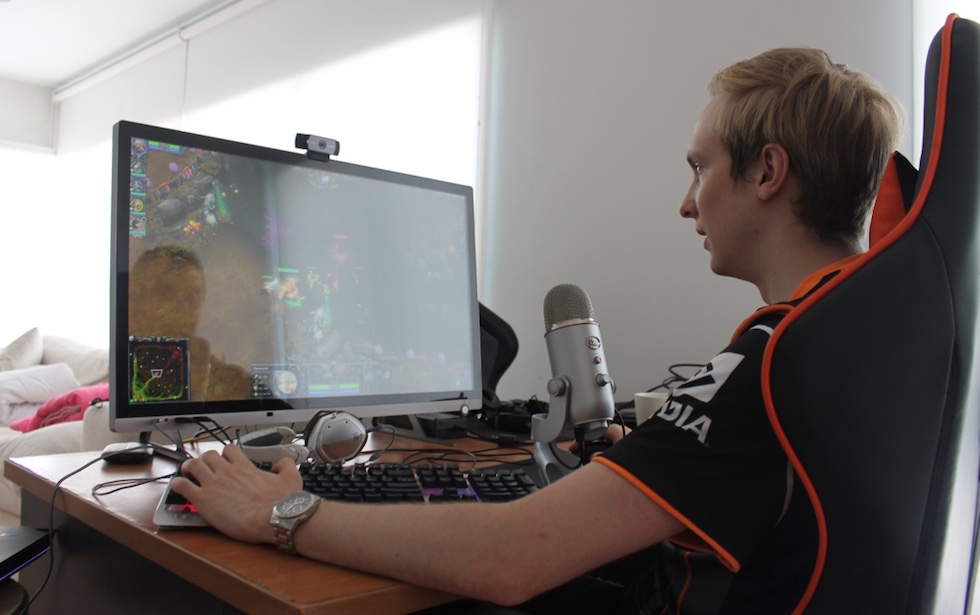
As he made a significant cut in his working hours, his fans still supported and helped him through the transition that would get him back on top. It has made Pontus focus a lot more on always being open about anything that affects his followers. He hopes that it can somehow help them.
“My advice is; don’t overwork, don’t put that much pressure on yourself. I was blaming myself for everything; lower viewer numbers etc. and it just gets worse and worse until you get to the breaking point. Don’t be afraid to talk to people about your problems, and fix it, before it happens, before you get to the breaking point.”
“I was too proud to say that I was working too much. You realize you can’t keep going, but also tell yourself that you have to. You don’t. Nothing should get in the way of you being healthy. It was a very big mistake, which is why I am so open about it. I don’t want people to make the same mistakes I did.”
An addictive feeling
When asked whether his advice was not a bit hypocritical considering his work load today, Pontus laughed it off.
“I’m very good at giving advice, but not good at following it myself.”
However, he does believe he has learned and will not go back down that road again. He also admits that right now he is working too much and cannot keep going like this, so he has hired people that will help him with his YouTube channel, which will cut two hours down in his day, and he is also hiring someone else that will take a big part of his workload away as well, so he can focus on the things he enjoys the most.
At some point he will have to say goodbye to some of his work. Not long ago, he said that he would stop playing professionally after his latest world finals, and then focus only on streaming. But as he played at the finals in front of a crowd of around a thousand people, Pontus did something that made the crowd blow up in cheering and amazement. The feeling he got from that was something he had not felt in a long time.
“After that, I don’t want to quit. That feeling is very addictive and I am not ready to give that up.”
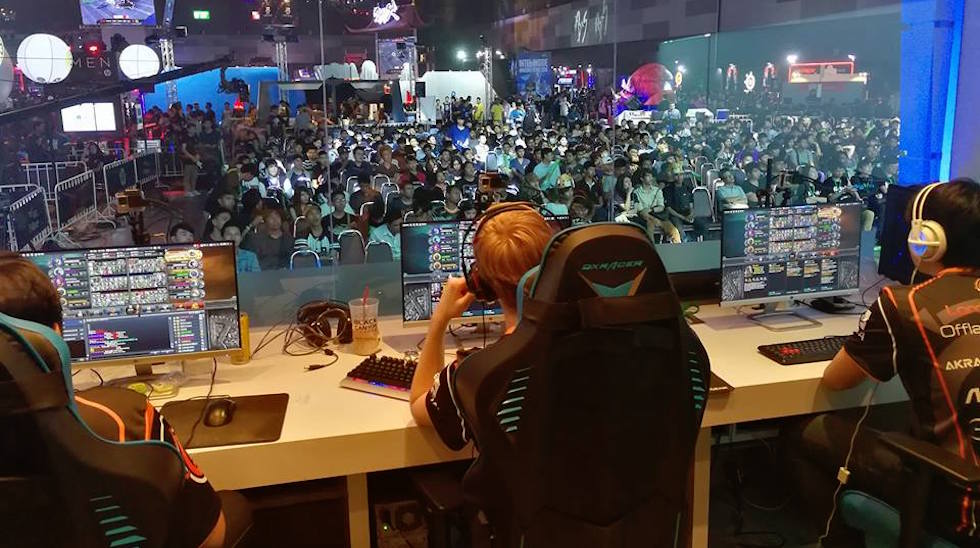
Game Over Lounge to make gamers social
Pontus says it is impossible to tell where he will be in 10 years, but he definitely does not want to leave the gaming world. Right now, he really believes in the Game Over Lounge project and hopes that it will be able to expand to many more countries, and be a revolution for the world of gaming.
“With Game Over Lounge we really want to make gaming more socially acceptable, and help gamers meet other people and be more social, because they are often a bit socially awkward, and we really want to help with that.”
Helping people is in general something Pontus is happy to do. When it comes to giving relationship advice or helping people making big life choices, Pontus is also a big help for his many followers, who feel safe asking him big questions.
“Watching my stream everyday, people get to learn more and more about me, at some point they maybe feel like they get to know me, and then it is natural for them to ask for my advice.”
Earlier this year he also took part in a charity project, where people would ask him questions, and for every question he answered, an organization would donate to a mental health fund for gamers.
The rate of suicide is higher among gamers than among people with other sports and hobbies. Pontus points out that it is mostly the gamers who shield themselves off from the world and only interact online. So being able to go to a place like Game Over Lounge and feel accepted and meet people might just be a way to also help this.
He is not sure how, but continuing his career in the world of gaming, wants to keep helping other people. Whether it is opening a place for them to be more social, helping a kid reach stardom or by talking about the mental challenges that can come along with gaming.
“I will always be involved somehow. I love this world too much to leave.”


Thanks for sharing such useful ideas.